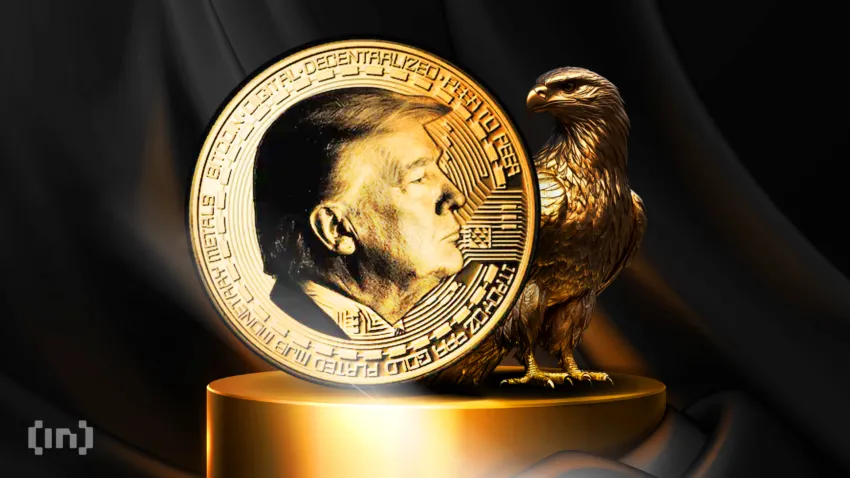President Trump’s Role in USD1 Stablecoin Prompts Regulatory Questions
US Senators, led by Elizabeth Warren, raised concerns about potential conflict of interest involving President Trump and the USD1 stablecoin.
- A group of US Senators, led by Elizabeth Warren, have raised concerns over President Trump’s reported ties to the upcoming USD1 stablecoin.
- They argue that Trump’s reported ties to the project could allow him to influence federal regulators, including the Fed and OCC, to benefit the asset.
- The Senators have requested the Federal Reserve and OCC to clarify how they plan to manage such risks, especially with the GENIUS Act lacking safeguards.

A coalition of US Senators is raising serious concerns about a potential conflict of interest involving President Donald Trump and an upcoming stablecoin project called USD1.
The digital asset, backed by World Liberty Financial (WLF), has drawn scrutiny due to Trump’s reported ties to the company behind it.
Warren-Led Group Flags Risks of Presidential Involvement in USD1 Approval
On March 28, a group of lawmakers led by Senator Elizabeth Warren sent a letter to the Federal Reserve and the Office of the Comptroller of the Currency (OCC).
They asked both agencies to clarify how they plan to uphold regulatory integrity regarding the impending USD1 stablecoin.
The request comes as Congress considers the GENIUS Act, a bill that would grant the Fed and OCC broad authority over stablecoin regulation.
“The President of the United States could sign legislation that would facilitate his own product launch and then retain authority to regulate his own financial company,” they noted.
The Senators warned that allowing a sitting president to profit from a digital currency regulated by federal agencies under his influence poses a major threat to financial stability. They argue that such a situation is without precedent and could erode public trust in the regulatory process.
“The launch of a stablecoin directly tied to a sitting President who stands to benefit financially from the stablecoin’s success presents unprecedented risks to our financial system,” They argued.
The letter outlines scenarios where Trump could directly or indirectly influence decisions involving USD1.
For instance, the President could interfere with the OCC’s evaluation of the stablecoin’s application or discourage enforcement actions against WLF.
They also suggested that Trump could pressure the Federal Reserve to provide emergency financial support for USD1 during market volatility—support that may not extend to competing stablecoins.
“[Trump] could also attempt to direct the Fed to establish a master account at the central bank for WLF. He could intervene to deny such assistance to USD1’s competitors,” the lawmakers stressed.
In addition, the Senators noted that the GENIUS Act contains no conflict-of-interest provisions that would prevent Trump from using his office to benefit financially from the stablecoin’s success.
This absence of guardrails, they say, opens the door to regulatory favoritism and economic manipulation.
Considering this, the lawmakers demanded clarification on how the Fed and OCC would handle key issues. These include the approval process for USD1, the potential creation of liquidity support during crises, and WLF’s oversight of potentially unsafe business practices.
The agencies must submit their responses by April 11, 2025. The letter was signed by Senators Elizabeth Warren, Ron Wyden, Chris Van Hollen, Jack Reed, and Cory Booker.
Disclaimer: The views in this article are from the original Creator and do not represent the views or position of Hawk Insight. The content of the article is for reference, communication and learning only, and does not constitute investment advice. If it involves copyright issues, please contact us for deletion.